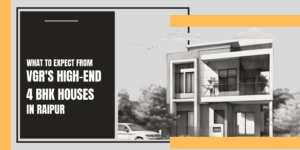Buying your first home is a monumental milestone, but it can also be a daunting experience. From understanding the financial aspects to navigating the real estate market, there are many factors to consider. This guide provides essential tips for first-time home buyers to help make the process smoother and more manageable.
Assess Your Financial Health
Before you start house hunting, it’s crucial to have a clear understanding of your financial situation. Here are some steps to take:
Check Your Credit Score : Your credit score plays a significant role in determining the mortgage rates you’ll qualify for. Obtain a copy of your credit report and check for any inaccuracies. If your credit score is less than ideal, take steps to improve it by paying down debts and avoiding new credit inquiries.
Evaluate Your Savings : Buying a home involves various costs, including the down payment, closing costs, and moving expenses. Ensure you have sufficient savings to cover these costs. Ideally, you should aim for a down payment of at least 20% of the home’s purchase price to avoid private mortgage insurance (PMI).
Determine Your Budget : Use a home affordability calculator to estimate how much you can afford to spend on a home. Consider your monthly income, existing debts, and potential mortgage payments. It’s essential to choose a home that fits within your budget to avoid financial strain.
Get Pre-Approved for a Mortgage
Before you start looking at homes, get pre-approved for a mortgage. Pre-approval provides a clear picture of how much you can borrow and shows sellers that you are a serious buyer. Here’s how to go about it:
Gather Financial Documents : Lenders will require various documents, including proof of income, tax returns, and information about your debts and assets. Having these documents ready will streamline the pre-approval process.
Shop Around for Lenders : Different lenders offer different mortgage rates and terms. Compare offers from multiple lenders to find the best deal. Pay attention to the interest rate, loan term, and any fees associated with the loan.
Understand Mortgage Options : There are various types of mortgages available, such as fixed-rate, adjustable-rate, FHA loans, and VA loans. Research and understand the pros and cons of each option to choose the one that best suits your needs.
Find a Knowledgeable Real Estate Agent
A good real estate agent can be an invaluable resource for first-time home buyers. They can guide you through the process, help you find homes that meet your criteria, and negotiate on your behalf. Here’s what to look for in a real estate agent:
Experience and Knowledge : Choose an agent with experience in the local market and a track record of successful transactions. They should be familiar with the neighborhoods you’re interested in and have a good understanding of market trends.
Communication Skills : Your agent should be responsive and communicate clearly. They should listen to your needs and preferences and keep you informed throughout the process.
References and Reviews : Ask for references from past clients and read online reviews to gauge the agent’s reputation. A reliable agent will have positive feedback and a history of satisfied clients.
Start House Hunting
Once you have your finances in order and a real estate agent by your side, it’s time to start looking at homes. Here are some tips for the house-hunting process:
Create a Wish List : Make a list of features you want in a home, such as the number of bedrooms, bathrooms, location, and any specific amenities. Prioritize your must-haves versus nice-to-haves.
Attend Open Houses : Visiting open houses allows you to see properties in person and get a feel for different neighborhoods. Take notes and photos to help you remember each home.
Consider Future Needs : Think about your long-term plans and how the home will meet your needs in the future. For example, if you plan to start a family, consider the number of bedrooms and proximity to good schools.
Make an Offer
When you find a home you love, it’s time to make an offer. Your real estate agent will help you determine a fair offer price based on comparable sales and market conditions. Here’s what to consider:
Offer Price : Base your offer on the home’s market value and your budget. Be prepared to negotiate with the seller, as they may counter your initial offer.
Contingencies : Include contingencies in your offer to protect yourself. Common contingencies include financing, home inspection, and appraisal. These contingencies allow you to back out of the deal if certain conditions are not met.
Earnest Money : You’ll need to provide earnest money, a deposit that shows your commitment to the purchase. This money is typically applied to your down payment or closing costs.
Get a Home Inspection
A home inspection is a critical step in the home-buying process. It ensures that the property is in good condition and identifies any potential issues. Here’s what to expect:
Hire a Qualified Inspector : Choose a licensed and experienced home inspector to thoroughly examine the property. Your real estate agent can recommend reputable inspectors.
Attend the Inspection : If possible, attend the inspection to ask questions and get a firsthand look at any issues. The inspector will provide a detailed report of their findings.
Review the Report : Carefully review the inspection report and discuss any concerns with your agent. You may need to negotiate with the seller for repairs or a price reduction based on the inspection results.
Close the Deal
Once the inspection is complete and any issues are resolved, it’s time to close the deal. Here are the final steps:
Final Walk-Through : Conduct a final walk-through of the home to ensure it’s in the agreed-upon condition. Check that any requested repairs have been completed.
Review Closing Documents : Review all closing documents carefully before signing. These documents include the loan agreement, title insurance, and the settlement statement.
Closing Costs : Be prepared to pay closing costs, which can range from 2% to 5% of the home’s purchase price. These costs include fees for the loan, appraisal, title search, and other services.
Conclusion
Buying your first home is an exciting journey, but it requires careful planning and preparation. By assessing your financial health, getting pre-approved for a mortgage, working with a knowledgeable real estate agent like VGR Real Estate, and following these tips, you can navigate the process with confidence. Remember, patience and diligence are key to finding the perfect home that meets your needs and budget. Happy house hunting!





